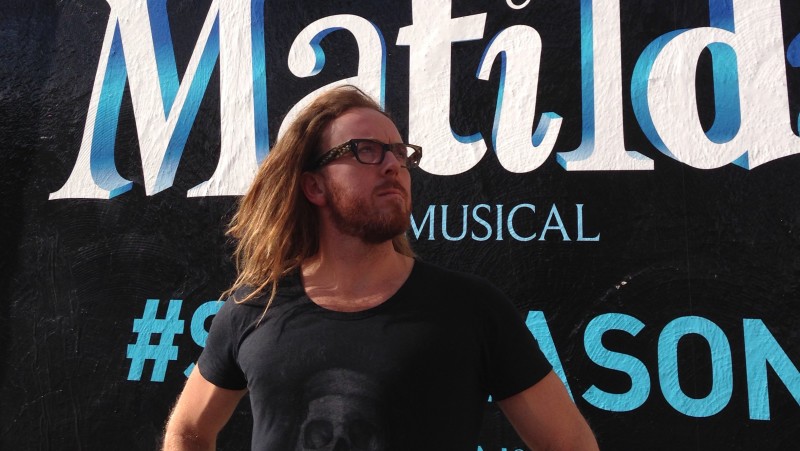But at the same time, my grandmother and my mum took us to see all the Gilbert and Sullivan shows that were on at the local theater. So I’m a great fan of lyrical trickery and density. And that might have been an influence. But then the big bands in my life, aside from the Beatles, were Queen and the Kinks. Ray Davies of the Kinks went from writing “Waterloo Sunset,” which for me was one of the most beautiful songs ever written, to “A Dedicated Follower of Fashion,” which is absolute social satire. So I was always, in hindsight, a fan of people who wrote songs that weren’t lyrically vapid.
Then I got the call from the Royal Shakespeare Company saying, “Have you heard of Matilda and Roald Dahl? We’ve got the rights to do it as a musical.” And I went, “Yeah. And not only have I heard of it, but I thought about writing it as a musical 10 years ago.”
So you were a fan of Roald Dahl?
Dahl is without any exaggeration the author of my childhood. I read everything. I can picture his books on my bookshelf when I was a kid. My daughter’s first novel I ever read to her was Charlie and the Chocolate Factory.
I had actually written to the Dahl estate and asked about the rights to Matilda when I was writing children’s theater in Perth. It’s the only time I’ve ever written to anyone about rights. And then nine years later, in a total coincidence, they came and asked me to do it.
So the producers of Matilda heard about you. What were they responding to in your work? It’s pretty profane stuff for the composer of a family-friendly Broadway musical.
In fact I was suggested to the director Matthew Warchus by the RSC dramaturg Jeanie O’Hare, She said, “You should go have a look at Tim Minchin. He writes these clever wordy comedy songs, and they’re very dark, and that’s surely the sort of thing we want for Dahl.”
So Matthew came along to my show, with my songs about science and religion — slightly contentious topics. At the very end of the show, he had pretty much decided I was very heady, but he didn’t think I had the heart or the emotional access to write the music for Matilda.
He was about to grab his jacket and go, and I came on to do my encore. I always like to do sentimental encores. I sang a song called “White Wine in the Sun,” which is a song about Christmas and taking my baby daughter home to see her family, that is a real weeper and really kicks people in the guts.
Matthew just changed his mind, spun on a dime. As far as I know — he’d have to verify this story — he went back and said, “It’s that guy or I’m not doing it.”
So how do you balance songs that are smart, funny and tell a story with ones that touch the hearts of those in the audience?
I was part of making a musical that’s become successful. But one wants to be very careful in assuming that I know something about musicals.
When it comes to theater, the most important thing for me is you never forget that you’re telling a story and that you must connect to what that character is going through and what we want to know about them at that point.
If you’re true to the story and caring about your characters, then there’s no decision to be made.
Even though this show is a musical comedy, the subject is very serious. How do you write songs about a girl who is really the victim of child abuse?
That’s right. But you don’t write a song in which Matilda sings, “It’s hard being a little girl locked in an attic.” You sing a song about her defiance. Matilda’s first song is about being naughty.
When Matilda is oppressed by her parents, she finds little ways to take her power back by playing little tricks. And then as she goes on, she’s oppressed by a much greater force: by a school with a despot at the top, like a dictatorship. She has to draw on deeper knowledge, read more books.
She has to move stuff with her eyes. In the end she’s a superhero. Her powers come from being cheeky and reading books.
I’m passionate about this musical because its role model is not only a genuine feminist icon, but is also an icon for an American narrative — that you can take power back for yourself. We need to create art that says to people, “Knowledge is power, not taking power with guns and beheadings. Read more. Read more. Read more.” Basically the musical says “read more.”
It’s a privileged middle class thing to say, “What everyone needs is more books.” But it’s true as well.


